Anti-vax and vaccine hesitant: what is the impact of those refusing to get jabbed?
There is growing frustration with the minority of people who have yet to receive their Covid-19 jabs. Who are these people?
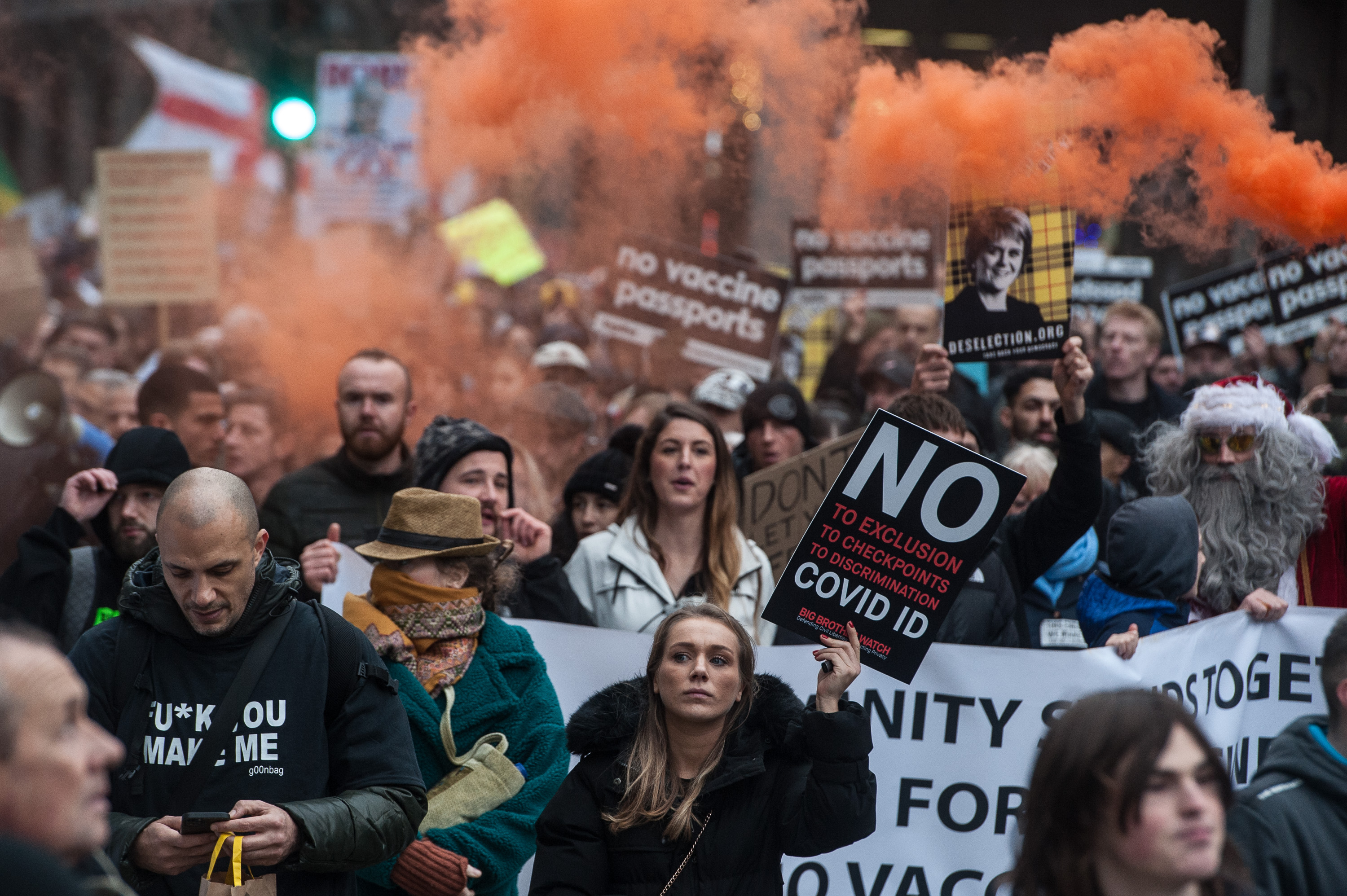
A free daily email with the biggest news stories of the day – and the best features from TheWeek.com
You are now subscribed
Your newsletter sign-up was successful
A very large number of people are unjabbed, even though Britain’s Covid-19 vaccine roll-out has, in general, been a great success. Of the total UK population, some 78% have had at least one dose – slightly above the G7 rich nation average of 77% – and that’s not counting its genuinely “worldbeating” booster campaign: 53% of British people have received third doses.
The overall figure would be even higher were it not for the UK’s cautious approach to vaccinating under-18s. That said, as of early this week, about 9.7% of the eligible UK population (i.e. the over-12s) have still not had even one dose of the vaccine – a total of around 5.6 million people.
Around five million of those are over 18, and have been eligible for a vaccine for many months.
The Week
Escape your echo chamber. Get the facts behind the news, plus analysis from multiple perspectives.

Sign up for The Week's Free Newsletters
From our morning news briefing to a weekly Good News Newsletter, get the best of The Week delivered directly to your inbox.
From our morning news briefing to a weekly Good News Newsletter, get the best of The Week delivered directly to your inbox.
Are these people all committed anti-vaxxers?
There is certainly a sizeable group in the UK who strenuously oppose Covid vaccination and the attempts to encourage it, for reasons from libertarianism to distrust of modern medicine to conspiracism. They have held large protests in London; in some cases, they’ve harassed politicians and teachers, and threatened public health officials. On 29 December, protesters stormed an NHS Test and Trace centre in Milton Keynes and assaulted an emergency worker.
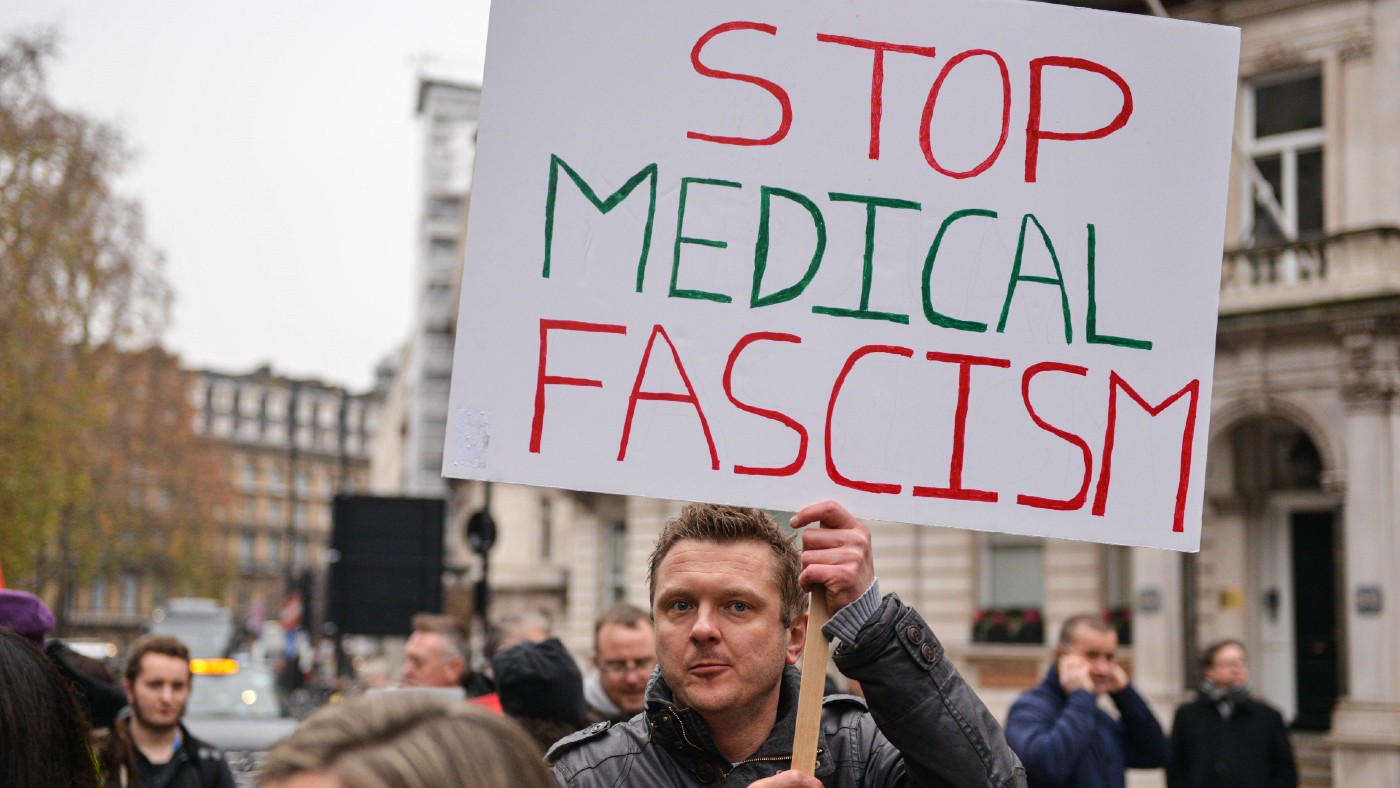
Numerically speaking, however, committed anti-vaxxers are fairly insignificant. “They’re very vocal, and they have a strong presence offline and online,” says Dr Mohammad Razai at the Population Health Research Institute, St George’s, University of London. “But they’re a very small minority.”
So should we be worrying about them at all?
Yes, because they spread fear and disinformation to a much larger pool, known by health officials as the “vaccine hesitant” – who don’t have a particular political agenda, but for a broad range of reasons are undecided and doubtful.
Research by the Office for National Statistics (ONS) has found that the primary factors driving vaccine hesitancy in younger adults includes distrust of vaccines; distrust of the Government and of those encouraging vaccine take-up; and concern about side effects.
A free daily email with the biggest news stories of the day – and the best features from TheWeek.com
More prosaically, many also believe that in their case vaccines are unnecessary, as they are at low risk of harm from the virus. And according to a recent Oxford University study, up to 10% of Covid vaccine hesitancy in the UK can be accounted for by needle phobia.
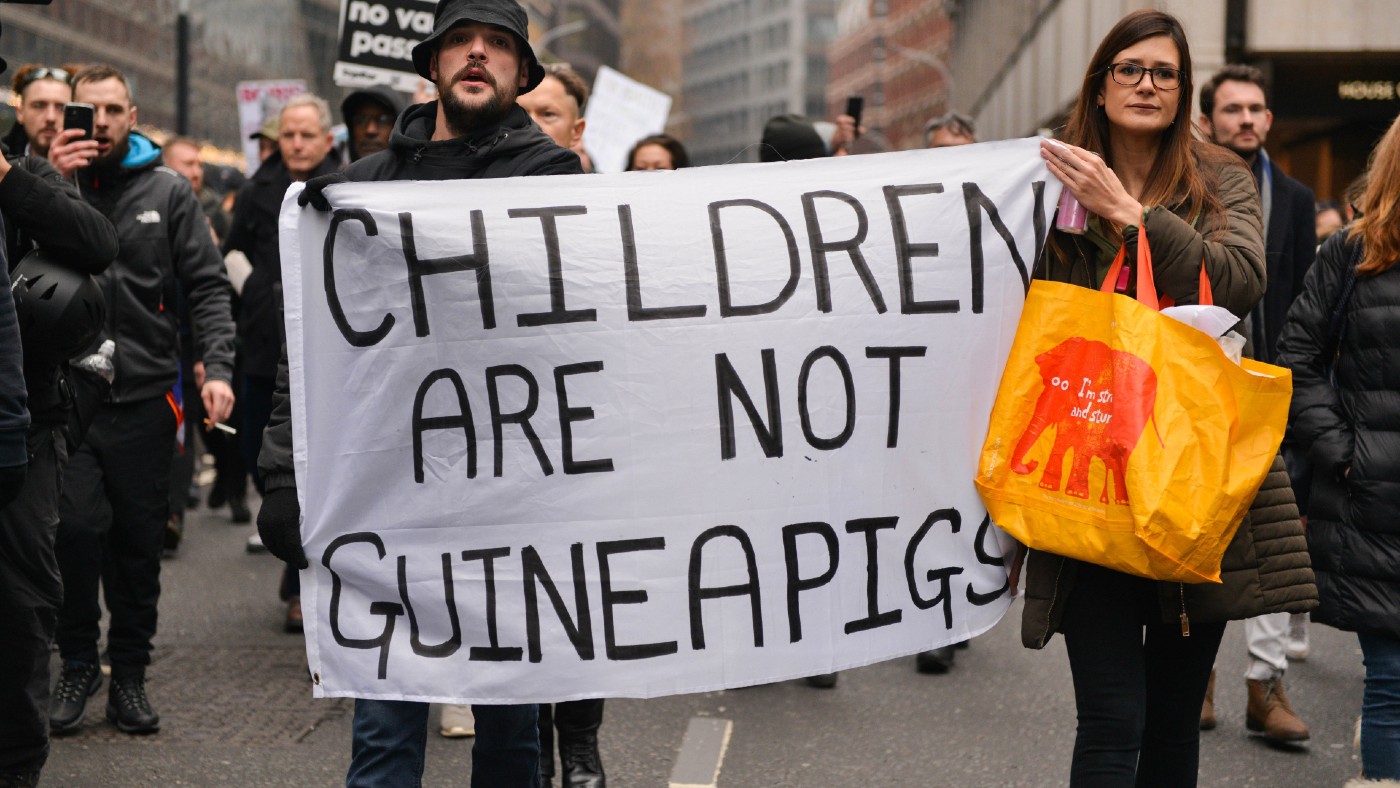
Who are the vaccine hesitant?
In Britain – according to the most recent ONS survey – they belong disproportionately to specific social groups, notably “young adults, those of black or black British ethnicity, the unemployed and those living in deprived areas”.
Ethnic minorities are significantly more likely to be hesitant, particularly those with low levels of trust in government. Among over-50s, the national rate for booster take-up is 75%; it is 42% in the Pakistani ethnic group; 44% in black Caribbeans; 45% in black Africans.
Are some areas worse affected?
Yes. In cities, where there are young and transient populations, as well as more diverse demographics, vaccine coverage is markedly lower than in other areas. In Manchester and Liverpool, about one in three over-12s have not had a first dose; in the London boroughs of Newham and Hackney, 38% and 37% have not had a first dose.
That compares to 22% in the more affluent borough of Richmond, and 11% in wealthy and less diverse areas such as Wiltshire and Shropshire.
What impact is all this having?
There’s no doubt that the unvaccinated are making the pandemic considerably worse. The ONS found that the Covid death rate in England among people who had a second jab was 96% lower than in those who were unvaccinated between January and October last year.
At present, the risk of hospitalisation from the Omicron variant is 90% lower for those who have received a booster shot. Conversely, the UK Health Security Agency estimates that unvaccinated adults are around eight times more likely to be admitted to hospital than those who have been jabbed.
The latest figures show that unvaccinated patients accounted for 61% of the patients admitted to critical care with Covid-19 in the UK in December, though they make up only 10% of the population. Obviously these cases add greatly to the pressure on the NHS. It’s also clear now that though vaccinated people do contract and spread Covid, unvaccinated people do so at higher rates.
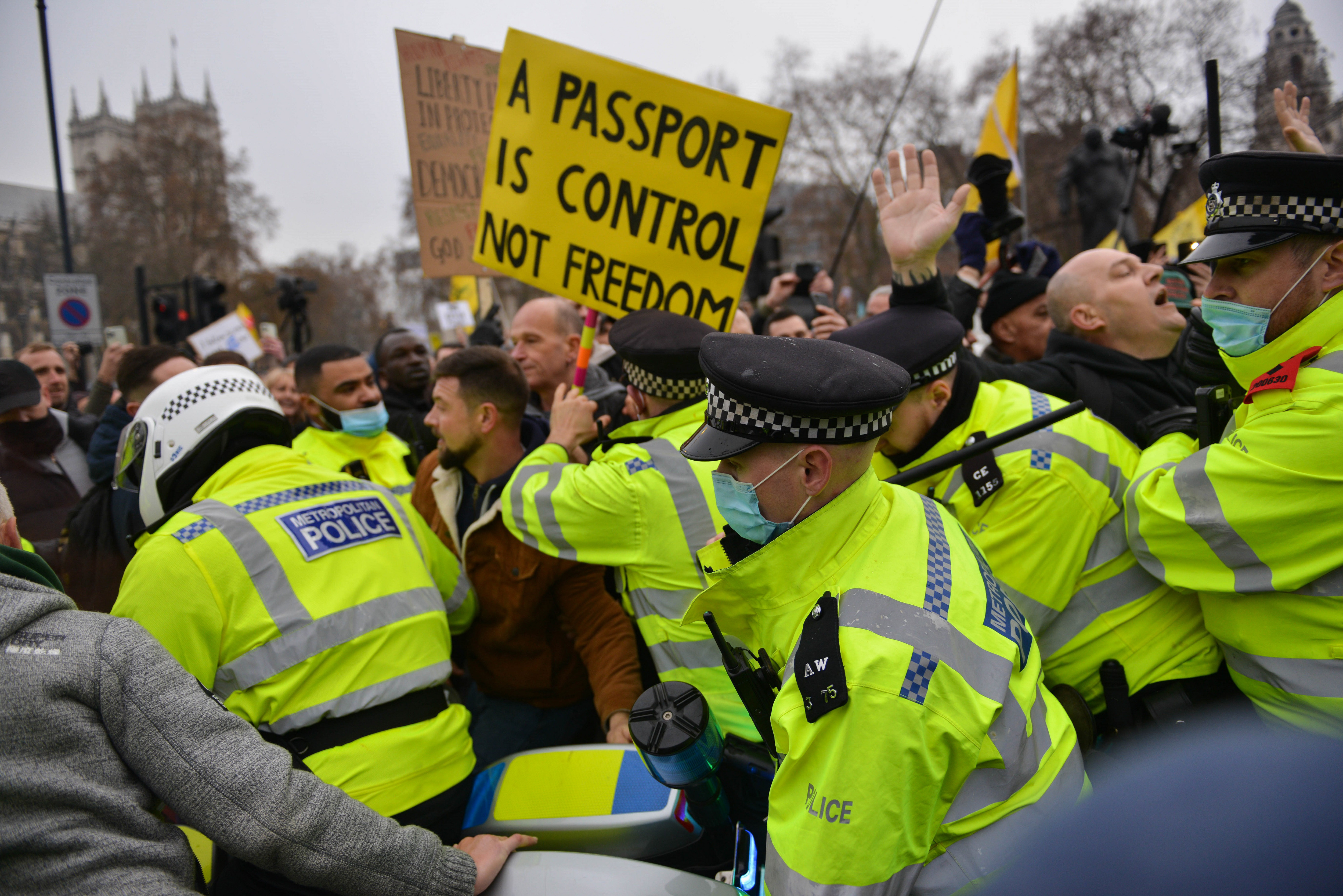
How has the UK Government responded?
It has largely restricted itself to promoting vaccines through advertising campaigns and, more recently, to public condemnation: last week, Boris Johnson accused anti-vax campaigners of propagating “mumbo-jumbo”, saying it was time to “call them out”.
But unlike many other European nations, the UK has no history of making vaccines mandatory; it has shied away from the draconian measures seen abroad. Indeed, such steps as it has tried to take have proved a political minefield for the PM. When a vote was held on introducing Covid passes to enter some venues, the Government suffered a large backbench rebellion.
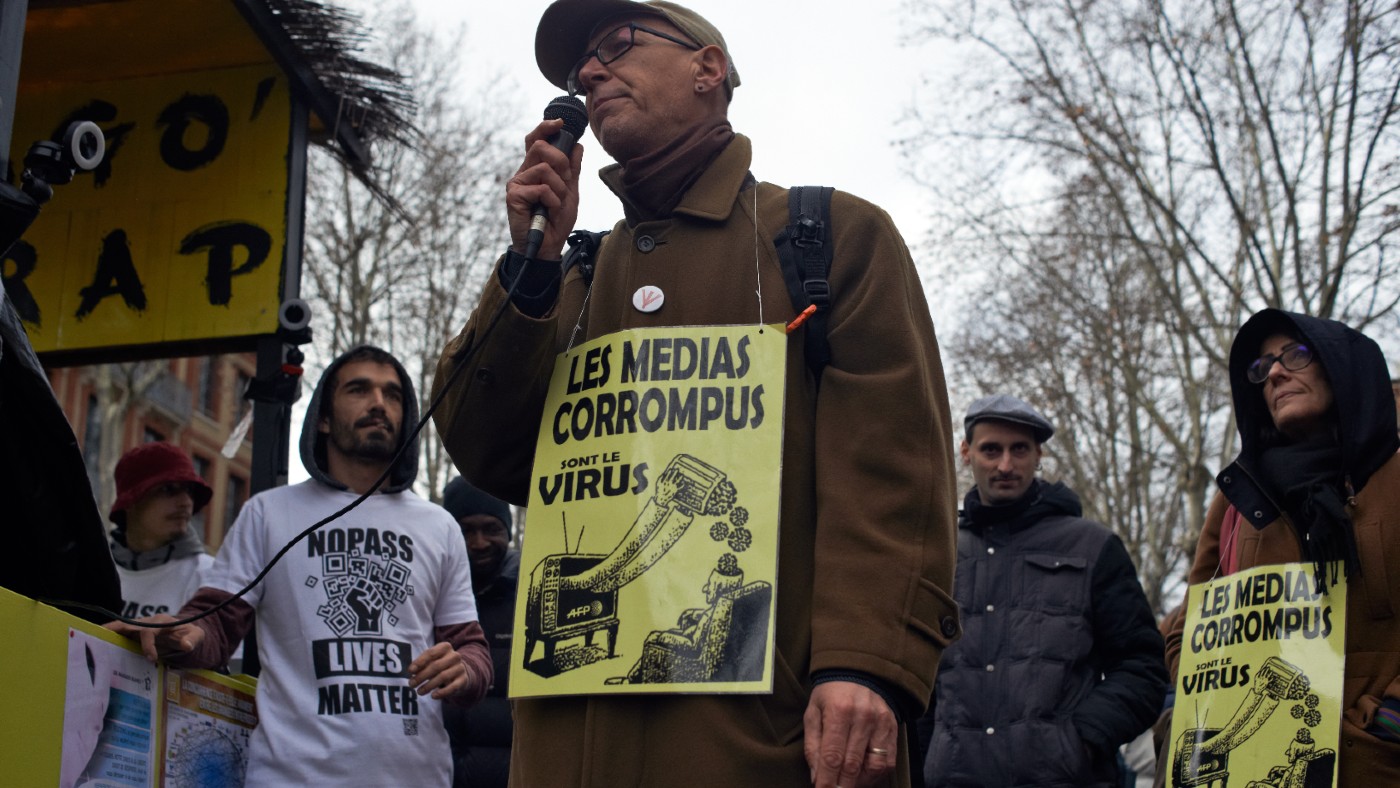
How has the rest of the world responded?
In November, Austria – which had one of western Europe’s lowest Covid vaccination rates – announced a “lockdown for the unvaccinated”: a stay-at-home order for those with no proof of immunisation, with fines of s500 for those who defied it. Even that was apparently not enough; it is set to become the first EU country to make the jabs obligatory, as of February.
In Germany, the new chancellor, Olaf Scholz, is also pushing to make vaccination mandatory, despite resistance from coalition partners. Italy has opted to make it mandatory for anyone over 50. Greece is pondering a similar move. In France, President Macron has vowed to “piss off” the unvaccinated by making their lives as difficult as possible: by banning them from cafés, restaurants, entertainment venues and long-distance transport.
Many nations, from Canada to Ukraine, require all public sector workers to be vaccinated; in the US, all those employed by companies with more than 100 workers must have vaccines or recent tests.
Singapore is now charging unjabbed patients for Covid treatment, on the grounds that they make up “a sizeable majority of those who require intensive in-patient care and disproportionately contribute to the strain on our healthcare resources”.
What else can be done?
Given the politics of the situation, mandatory vaccination is out of the question. In any case, many British public health experts feel that to make vaccinations compulsory would only serve to provoke a backlash.
The evidence suggests that with the vaccine hesitant, persuasion at a local level works best: many GPs and community leaders have worked tirelessly to win over hard-to-reach social groups. Ensuring that clear information is available in multiple languages also helps, as does providing convenient booking slots, especially to those who aren’t online.
The good news is that hesitancy has fallen consistently this year, and is likely to fall still further: nothing convinces as effectively as knowing other people who’ve been jabbed.
-
 The Olympic timekeepers keeping the Games on track
The Olympic timekeepers keeping the Games on trackUnder the Radar Swiss watchmaking giant Omega has been at the finish line of every Olympic Games for nearly 100 years
-
 Will increasing tensions with Iran boil over into war?
Will increasing tensions with Iran boil over into war?Today’s Big Question President Donald Trump has recently been threatening the country
-
 Corruption: The spy sheikh and the president
Corruption: The spy sheikh and the presidentFeature Trump is at the center of another scandal
-
 Growing a brain in the lab
Growing a brain in the labFeature It's a tiny version of a developing human cerebral cortex
-
 A Nipah virus outbreak in India has brought back Covid-era surveillance
A Nipah virus outbreak in India has brought back Covid-era surveillanceUnder the radar The disease can spread through animals and humans
-
 Trump HHS slashes advised child vaccinations
Trump HHS slashes advised child vaccinationsSpeed Read In a widely condemned move, the CDC will now recommend that children get vaccinated against 11 communicable diseases, not 17
-
 A fentanyl vaccine may be on the horizon
A fentanyl vaccine may be on the horizonUnder the radar Taking a serious jab at the opioid epidemic
-
 Health: Will Kennedy dismantle U.S. immunization policy?
Health: Will Kennedy dismantle U.S. immunization policy?Feature ‘America’s vaccine playbook is being rewritten by people who don’t believe in them’
-
 How dangerous is the ‘K’ strain super-flu?
How dangerous is the ‘K’ strain super-flu?The Explainer Surge in cases of new variant H3N2 flu in UK and around the world
-
 Vaccine critic quietly named CDC’s No. 2 official
Vaccine critic quietly named CDC’s No. 2 officialSpeed Read Dr. Ralph Abraham joins another prominent vaccine critic, HHS Secretary Robert F. Kennedy Jr.
-
 This flu season could be worse than usual
This flu season could be worse than usualIn the spotlight A new subvariant is infecting several countries